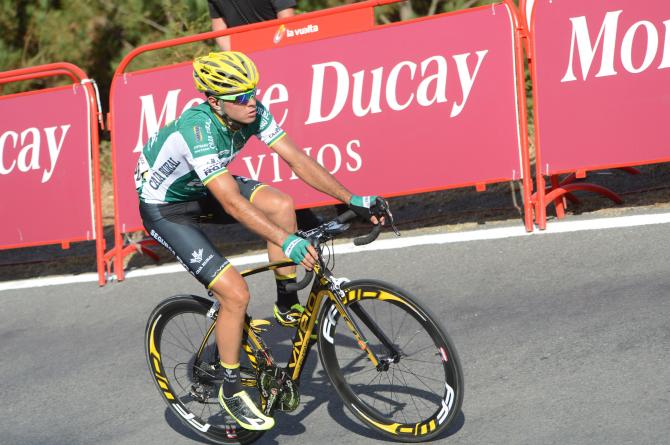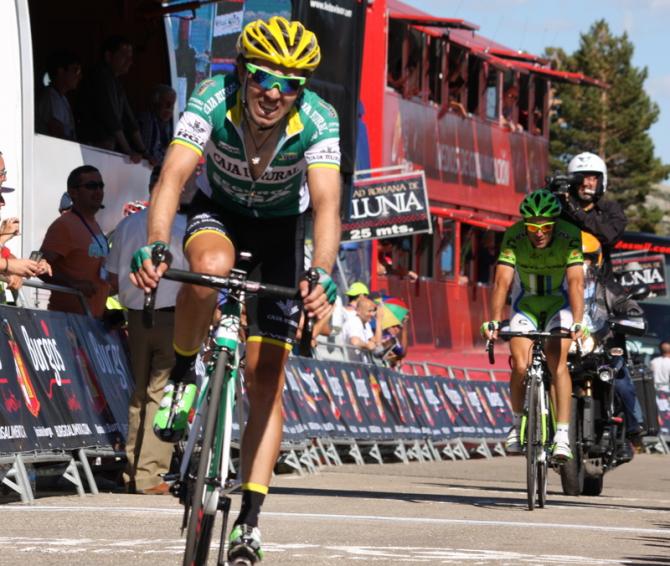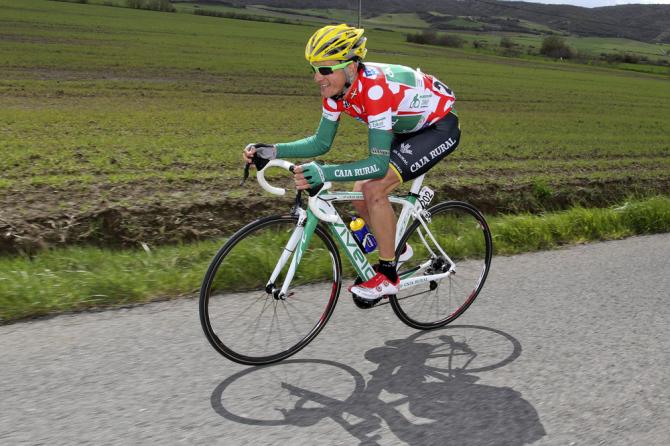Caja Rural lines out their plans for the future
Spain’s third pro team will not target WorldTour



With Spain’s sponsorship crisis set to deepen to its worst levels in decades in 2014, with the end of the Euskaltel team, there had been hopes that Caja Rural, Spain’s only Pro Continental squad, might start signing up some of the big names on offer.
Not so, sports director Jaime Gutierrez tells Cyclingnews. Rather, as a team that has made a name for itself taking stage wins and getting into breaks - like when Antonio Piedra took a Vuelta stage victory ahead of all the overall contenders at the Lagos de Covadonga climb last year and this season with popular riders like Amets Txurruka - Caja Rural has no plans to change in the future.
“Rather than feel pleased we’re going to get more publicity, we’re worried about how Euskaltel-Euskadi’s disappearance reflects the sponsorship crisis here in Spain,” Gutierrez said. “This isn’t good news for us or anybody. If there’s a way out of the crisis, I think we have to look at teams like ours that are small-scale and which have limited budgets rather than big WorldTour squads, that don’t scare the sponsors off.”
With their main sponsor a savings bank from the northerly region of Navarre, and the second, RGA, the bank’s own insurance company, Caja Rural currently has a budget of around 2 to 2.5 million euros and no plans for a major increase or to snap up any Euskaltel-Euskadi leaders looking for a squad in 2014. “Apart from anything else, a lot of them have contracts running into next year or beyond and we’re waiting to see what happens when it comes to sorting out their early termination,” Gutierrez says. “That situation is all a bit chaotic at the moment and it’s all a bit on standby.”
“We’re getting a lot of calls from management workers and from riders, but first we’ve got to sort out who we’re not re-signing. Then when we’ve done that, we’ll look at who we can contract for 2014.”
Assuming there is no minor miracle for Euskaltel-Euskadi at the last possible moment - rumours were circulating on Sunday that a Catalan bank may yet step in to save the team - next year there will be just two Spanish teams at ProConti and WorldTour level: Movistar and Caja Rural.
Assuming both ride the Vuelta 2014, that is the lowest level of home representation there has ever been since trade teams started racing the Spanish Grand Tour back in the early 1960s. And it is a far cry from the heyday of Spanish cycling sponsorship, 1989, when the record number of 11 Spanish teams took part in La Vuelta.
Get The Leadout Newsletter
The latest race content, interviews, features, reviews and expert buying guides, direct to your inbox!
As for 2013, 2010 Giro runner-up David Arroyo is Caja Rural's leader for the Vuelta, with a top ten placing overall in Madrid considered a success. Arroyo is currently 27th, around three and a half minutes back following a bad crash on the stage four to Fisterre and losing time, but after finishing twentieth at the Alto de Peñas Blancas he is slowly moving back up the ranking. “We want somewhere between fifth and tenth for him in Madrid.”
“We’re trying to get into breaks from the gun, and now in the mountains we’ll go for it with guys like Txurruka, Arroyo and Marcos [García],” Gutierrez says. “We’ve got to find the right moments, that’s all.”
“Our philosophy as a team is that of a ProContinental squad, even if we know we can improve the squad’s level little by little. We’re smallscale, and don’t get overly boastful about what we can achieve, and I think people appreciate that.”
He agrees that rather than signing one big name, though, they would be more likely to opt for five or six riders who can go for breakaways. “We want more riders like Txurruka for now, riders that are versatile, and assuming David still goes well, then we might start thinking about signing a sprinter.”
He grins broadly when asked if they might want to ride the Tour de France one day. “That’s a long way away from us for now. The Giro’s possible, provided we get enough advance warning, we’ve done some races in Italy like Trentino and Roma Maxima as the most important and then we’d look at what we could do elsewhere. We’re at that level now and that’s already pretty good.”
Alasdair Fotheringham has been reporting on cycling since 1991. He has covered every Tour de France since 1992 bar one, as well as numerous other bike races of all shapes and sizes, ranging from the Olympic Games in 2008 to the now sadly defunct Subida a Urkiola hill climb in Spain. As well as working for Cyclingnews, he has also written for The Independent, The Guardian, ProCycling, The Express and Reuters.
